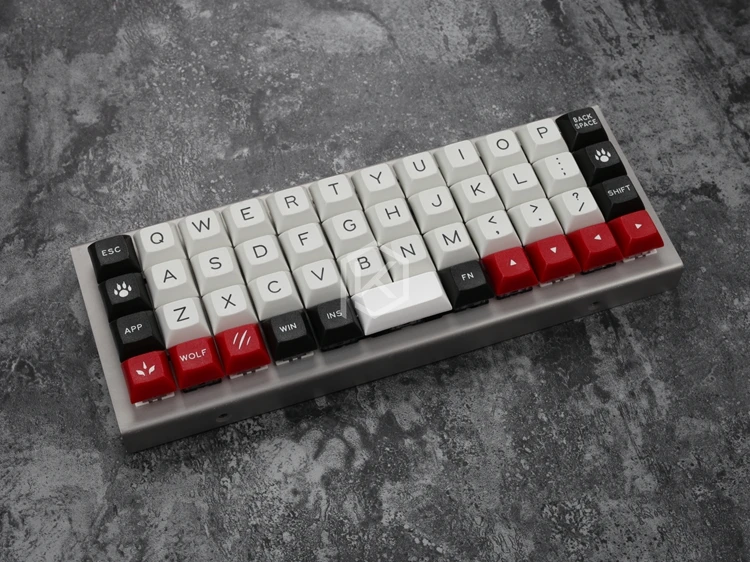* Adds support for multiple layouts. Adds custom keymap for "offset" layout. * Adds a tool to help detach the keyboard from the Linux HID driver before programming. * Adds a tool to help detach the keyboard from the Linux HID driver before programming. |
||
|---|---|---|
| .. | ||
| keymaps | ||
| tools | ||
| README.md | ||
| config.h | ||
| i2c.c | ||
| i2c.h | ||
| jj40.c | ||
| jj40.h | ||
| matrix.c | ||
| program | ||
| rules.mk | ||
| usbconfig.h | ||
README.md
jj40
A compact 40% (12x4) ortholinear keyboard kit made and KPRepublic on AliExpress.
Keyboard Maintainer: QMK Community
Hardware Supported: Atmega32A
Hardware Availability: AliExpress
Make example for this keyboard (after setting up your build environment):
make jj40-program
See build environment setup then the make instructions for more information.
Note that this is a complete replacement for the firmware, so you won't be using Bootmapper Client to change any keyboard settings, since not all the USB report options are supported.
In addition you may need the AVR toolchain and bootloadHID for flashing:
$ brew cask install crosspack-avr
$ brew install --HEAD https://raw.githubusercontent.com/robertgzr/homebrew-tap/master/bootloadhid.rb
In order to use the ./program script, which can reboot the board into
the bootloader, you'll need Python 2 with PyUSB installed:
$ pip install pyusb
If you prefer, you can just build it and flash the firmware directly with
bootloadHID if you boot the board while holding down L_Ctrl to keep it
in the bootloader:
$ make jj40
$ bootloadHID -r jj40_default.hex
Troubleshooting
- Try plugging the board in while pressing
L_Ctrl. This will force it to boot only the bootloader without loading the firmware. Once this is done, just reflash the board with the original firmware. - Sometimes USB hubs can act weird, so try connecting the board directly to your computer or plugging/unplugging the USB hub.
- If you get an error such as "Resource Unavailable" when attemting to flash
on Linux, you may want to compile and run
tools/usb_detach.c. Seetools/README.mdfor more info.
